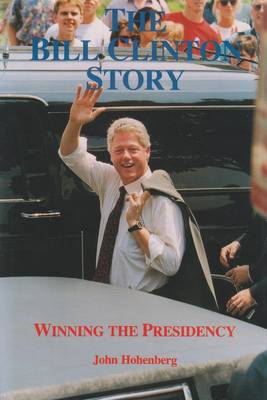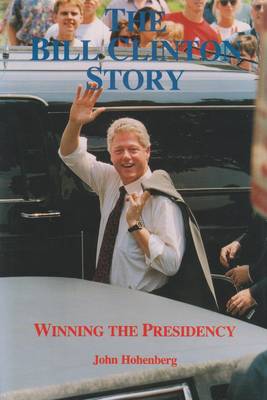
- Afhalen na 1 uur in een winkel met voorraad
- Gratis thuislevering in België vanaf € 30
- Ruim aanbod met 7 miljoen producten
- Afhalen na 1 uur in een winkel met voorraad
- Gratis thuislevering in België vanaf € 30
- Ruim aanbod met 7 miljoen producten
Zoeken
€ 41,95
+ 83 punten
Uitvoering
Omschrijving
This is the story of how Bill Clinton fashioned the incredible, the unbelievable, the 100 to 1 shot victory in the campaign of 1992 that made him the forty-second President of the United States. In the beginning, it wasn't supposed to happen that way. With the Soviet Union in collapse at the end of the Cold War, the hero of the Persian Gulf War, President George Bush, was initially regarded by friend and foe alike as unbeatable. Except for a brief charge by Pat Buchanan, no one really challenged him in the Republican primaries for renomination. While among the contenders for the Democratic nomination, there were only five--none nationally known. Clinton was in the pack. But one by one, the strongest Democrats--Paul Tsongas, Jerry Brown, and Bob Kerrey--fell into obscurity. In the end, against all odds, Bill Clinton and running mate Al Gore emerged to reunite the divided party. The Clinton/Gore ticket went on to lead a growing entourage of twenty- and thirty-something campaigners. Noble ideals, high energy, and rock music made the Democratic party a powerhouse of youth and vitality. The Clinton message spoke to a generation of voters who statistically had been labeled apolitical and, along with more mature voters, moved them to embrace the possibility for change. "The Economy, Stupid" codified the single greatest concern of voters throughout the country, despite their parting views on other matters. The overconfident President Bush lambasted his youthful rival on every issue, from unfamiliarity with national government to assertions of weakness in leadership and flaws in character. And yet, even after Ross Perot split off a part of the Democratic vote as well as a section of Bush's support, the man from Hope, Arkansas, beat them both on Election Day--the third youngest after Theodore Roosevelt and John Kennedy to enter the White House. Employing the skills he has shown in his earlier books, a "crisp, narrative style . . . (and) discerning editorial mind" (The New York Times Book Review), John Hohenberg's Bill Clinton Story vividly captures not only one man's road to the White House but, more importantly, it illuminates the changing face of American politics on the eve of the twenty-first century.
Specificaties
Betrokkenen
- Auteur(s):
- Uitgeverij:
Inhoud
- Aantal bladzijden:
- 296
- Taal:
- Engels
Eigenschappen
- Productcode (EAN):
- 9780815602842
- Verschijningsdatum:
- 1/05/1994
- Uitvoering:
- Hardcover
- Formaat:
- Genaaid
- Afmetingen:
- 159 mm x 237 mm
- Gewicht:
- 585 g

Alleen bij Standaard Boekhandel
+ 83 punten op je klantenkaart van Standaard Boekhandel
Beoordelingen
We publiceren alleen reviews die voldoen aan de voorwaarden voor reviews. Bekijk onze voorwaarden voor reviews.











